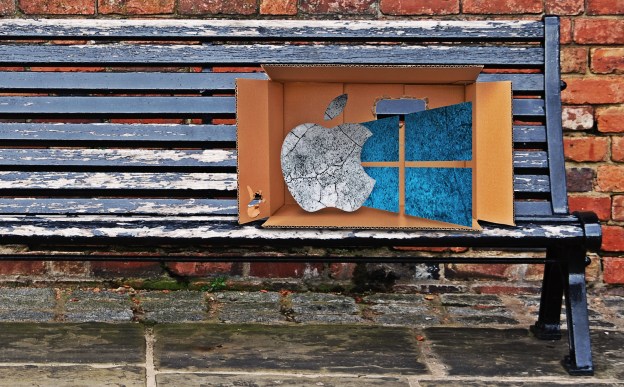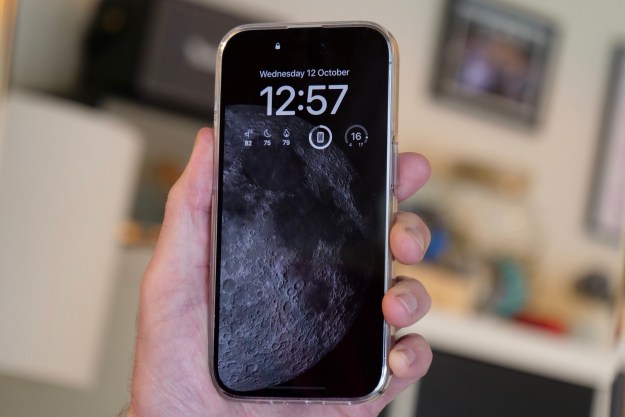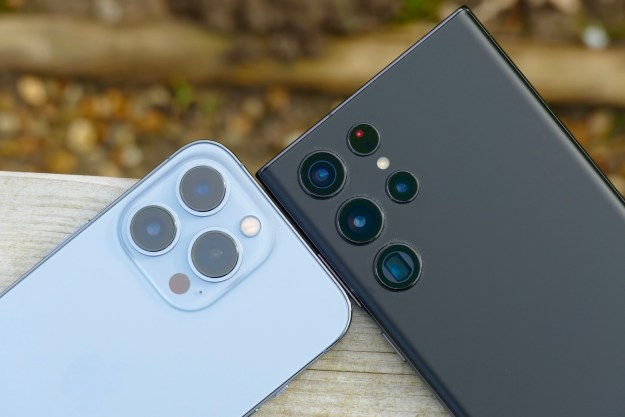
There have been app exclusives in the past. Rovio’s Angry Birds took a while to leave iOS, as did Instagram, and the Twitter-backed Vine video social network is still only found on Apple’s operating system. Notice a trend here? Of course you do. The Apple-first mentality of most developers is well-known. Android has a new ally, though. Despite long-standing tensions with Google, Facebook has bucked the trend of developing for iOS first and truly exploited Android’s openness. Facebook Home is an Android exclusive.
For years, the benefit of Android’s open-source nature for regular people has been questioned (even by our own Matt Smith), and the silly, and sometimes strange user interfaces most manufacturers create and place over the top of Google’s OS dismissed as needless marketing gimmicks. For all the complaining though, Facebook Home is only possible because Android is open source and has a history of, well, looking strange. Changing the way someone’s Android phone works may not prove all that jarring because many users will have had varying experiences anyway, particularly if they’ve owned multiple devices all produced by different manufacturers. An HTC phone, for example, has a completely different interface from a Samsung. Factor in the many ways Google itself has fundamentally changed the look of Android in the last few years and you get our point.
Apple and Microsoft’s desperation to control the mobile experience has seen them shut out of what could become one of the most important industry partnerships we’ll see this year. iPhone and Windows Phone users will not get Facebook Home. But will being ‘Homeless’ cause the two rival firms to feel a similar pain?
The number of potential new Android users is staggering
To understand why Facebook Home on Android is such a very big deal, let’s look at some numbers, starting out with an example from earlier: Instagram. Recently it announced nearly half its 100 million users are Android owners, and that’s after just a year of being available in Google Play.
One hundred million users is a lot, especially for a filter-happy, photo-sharing social network, and it’s a perfect example of how quickly a hot app can gain traction over a short space of time on Android. However, it’s dwarfed by Facebook’s one billion active members, 680 million of which access the site using a mobile device. Statistics indicate 470 million of them use an app to do so, leaving 210 million (the rest of us) using a mobile Web browser.
Finally, some independent research has shown in 2012, Facebook was used by around 190 million Android owners, following incredible growth from 66 million in 2011. Facebook fans were already flocking to Android even before Facebook Home’s arrival. The same research showed iOS had 147 million users. Sadly, Windows Phone’s numbers aren’t even worth mentioning.
All this is hardly surprising given Android’s performance over the last year. According to research carried out by Gartner, 144 million Android phones were sold during the final quarter of 2012 alone, accounting for nearly 70 percent of the market. A few quick sums based on some of these numbers indicates 490 million members of Facebook’s mobile army currently don’t use Android. This is where the potential for domination lies. If Facebook can convince its avid users on iPhone and Windows Phone to convert to Android to use Facebook Home, it may make more money and have happier users.
Apple and Microsoft left out in the cold?
Google, which must surely be welcoming Home with open arms, is probably chuckling to itself, knowing there’s nothing Apple and Microsoft can do about it either. In an interview with Fortune, Facebook CEO Mark Zuckerberg addressed the problem of getting Home onto Apple’s iOS, saying, “They really control the operating system,” and, “We’d love to offer this on iPhone and we just can’t today.” Nobody bothered to ask about Windows Phone, but the response would be the same.
But do iOS and Windows Phone users want Facebook Home? Facebook would tell you yes, but the answer is impossible to give at the moment. It may depend on how awesome (or not) it turns out to be once it launches. Still, one could argue that Facebook Home is fairly well replicated on iOS already. You can take a picture, tap share, and can send it to Facebook straight away. Pull down the notification center and you can post a status update. All of this without opening the official Facebook app.
It’s a similar story with Windows Phone, where Facebook is a key part of the experience, from the People Hub to the Live Tiles, and the seamless integration of contacts, status updates and profile pictures. The social (people first) nature of Windows Phone is one of its major selling points, not that anyone seems to care much yet. With Facebook already a major part of iOS and Windows Phone, we’d imagine only the most hardcore Facebook fan is going to be putting their phone on Craigslist tonight, ready to pre-order an HTC First tomorrow.
If Home’s a hit, Homelessness will hurt
Of course, this could change if Facebook Home is a hit, and it already has the benefit of being free, so it’s easy to attract users willing to give it a shot. However, Facebook needs to make money, and it does so using ads, so will they be a part of Home? Not yet, but according to Zuckerberg, they’re coming and when they do, they’ll be part of Cover Feed. Presumably they’ll appear as sponsored news stories, just like they do in the Web-based News Feed. Almost everybody hates ads, so Facebook will have to be very careful with the way they’re implemented, or it could see Home shed users as quickly as it gains them.
Zuckerberg quoted figures saying the average Facebooker spends 25 percent of their mobile time using Facebook and Instagram. He then described Facebook Home as the best possible Facebook experience. If he’s right, every single one of those users who want to have the best will be wanting an Android phone. Being Homeless just became a serious concern for Apple and Microsoft; Home could be a compelling reason for a few hundred million Facebook mobile users to choose Google’s operating system next time they buy a phone.
Editors' Recommendations
- iPhone 16: news, rumored price, release date, and more
- iPhone SE 4: news, rumored price, release date, and more
- Here’s how Apple could change your iPhone forever
- How to connect an iPhone to a Mac with or without a cable
- How to use iMessage on an Android phone or tablet




